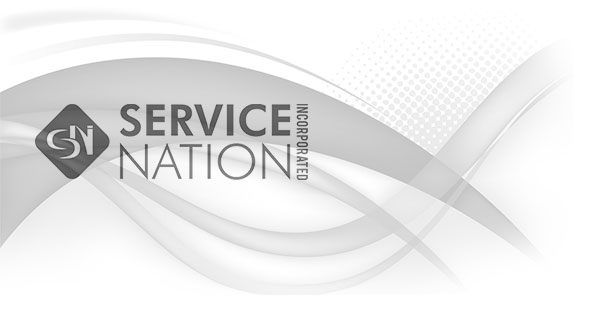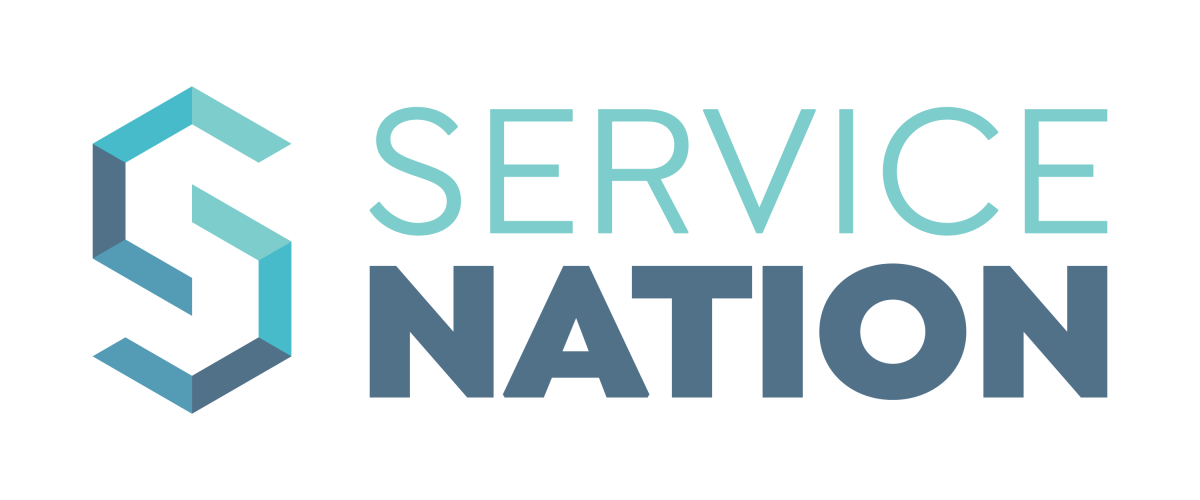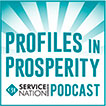When he ran O’Connell Plumbing, he was named the Service Roundtable Contributor of the year. And after selling O’Connell Plumbing and becoming an industry consultant, he was named the Tom McCart Consultant of the year. He was a speaker at the International Roundtable in Fort Worth a few years ago. He speaks at our Success by Design Days, periodically. He’s a columnist for Contractor Magazine, he’s a mentor for two Service Nation Alliance Advisory Boards, and he’s an industry consultant as w ell. So welcome Ed, thanks for agreeing to do this with me.
Ed O’Connell: Well, before, you say I’m a Vietnam vet, that’s really not fair. I was in
Vietnam, a couple, 3, 4, 5 times on what you would call TDY orders, Temporary Duty Orders. And, so I was no hero, no grit, no fighter type guy. I was back up. I don’t want anybody to get the wrong impression that I’m some kind of war hero because that’s just not the fact. But I did my service and I got out with an honorable discharge, barely, because my drinking and drug ab use had actually started during that period. It was during the sixties and I got quite involved with whatever was going on at the moment there. But, yeah, the fact of the matter is, I lived on the streets for 10 years, in and out of a lot of institutions. Institutions sound better than jails. I don’t know how I got back, really.
It was a lot of fortunate circumstances. Number one, I got to give it to the plumbing industry. I had worked my way through college as a plumber. And, so when I got a chance to come in off the streets, I almost immediately had work opportunities. Anyway, when I got off the street with the help of the Veterans Administration. I owed them more than I can possibly tell people. The VA put me in their drug and alcohol abuse program. And, I got involved with a group of guys who were going through the same thing I was and were in various stages of recovery and through a long process. The VA helped me medically, I didn’t have a face, my face had been kind of caved in, and the doctors put me all back together again. And, while that was all going on, I became part of an outpatient group. And they also got me involved with a halfway house, in which I lived for a year. That was my first taste of what could happen when I started trusting a group of, in this case, it was a group of guys. We were all guys together. Very few women were in the service at that time.
David Heimer: Yeah, I’m old enough to know that, I remember.
Ed O’Connell: That was probably a good thing, because I really started to hook up with these guys, and most of them weren’t as far along as I had been. But they gave me hope and I started depending on these guys, in ways I didn’t know I needed to. And so when I had problems or I was about to drink or something like that, they would really help me out. At the same time, I met a guy by the name of Bill Lutz. I applied to his company for a job and Bill gave me a job. He was a Korean Vet, and because I had come from the VA Hospital, and had spent some time in Vietnam, he took me on as a special case and I went to work for him in San Francisco.
The VA Hospital I attended was in San Francisco too. I went to work for Bill, and if anybody knows San Francisco was in North Beach. And, for an alcoholic to be workingin North Beach, was really an incredible experience. But, Bill gave me a job. I told him the truth about myself and he took a chance on me. And he’s one of the great men in my life, who helped me over the hump. From the VA, I kind of morphed into alcoholics anonymous. I was so bad off, I would have never even gotten to Alcoholics Anonymous if it hadn’t been for the group in the VA. And, it took me a while to get involved with AA. But, little by little, I started to get friendships, and all the people that I had met, were all sober people. There’s a saying, I’m paraphrasing here, but, you are and you become like the people you hang out with.
David Heimer: And something like, you’re the average of your five closest friends, or something like that.
Ed O’Connell: Yeah.
David Heimer: Yeah.
Ed O’Connell: Something like that. So, I started seeing that if I hung out with successful people, whether it was in recovery, or anything else, I was doing well. And, I got to tell you though, one thing about AA, AA became one of the best dating groups that I had ever come across. And I’m not too sure that many of the young ladies I dated in AA, may have been more instrumental in keeping me as part of the group {inaudible 06:35}. So, I always want to be truthful about these things. But it did start to get to me, I was who I hung out with. And, I stopped being afraid of being a part of groups. Like recently, in 2010, I was way overweight, and I lost 80 pounds. But in two years, it took me two years to lose 80 pounds and that was with Weight Watchers. I formed friends in that group.
David Heimer: You ended up being a leader in that group too. Didn’t you, for a while?
Ed O’Connell: Yeah, I did. I was leading for a while. After I sold my company, I didn’t have anything to do. So they asked me to be a leader, and so I was one of their diamond leaders as a matter of fact. I was really great with groups. I had a lot of fun and I learned one of the great lessons of my life, is never try to handle a thermostat in a room full of women, you’re not going to succeed. But that’s just another example of, if something I wanted to change, go to a group that was specific about that, and away I went.
David Heimer: 80 pounds in 2 years, that’s almost like a third of your weight, I would guess.
Ed O’Connell: Yeah.
David Heimer: Wow. That’s impressive.
Ed O’Connell: I was 245, I got down to 170. Regretfully, I’m at 190 again. So I have to go back to Weight Watchers. But I’ll never go back to that 245 again. And so, those are just examples of what I think. And then, about five years after my recovery, I’d cleared up all my tasks and add ‘no’ to a series of really great people, legal people too. I was able to get rid of any felony charges against me, from my past. And Bill Lutz sold his plumbing company. I worked for him for five years and was one of his best plumbers, really learned a lot from Bill on running a business. But he sold the company, I didn’t really enjoy talking to the guy who bought it. So, I went to work for someone else, I got mad at him and I went into business for myself, and my whole business plan was, if this idiot can do it, I can do it better.
David Heimer: There’s a lot of people who go into business that way.
Ed O’Connell: Yes, that way, yeah.
David Heimer: How did that work out for you?
Ed O’Connell: Well, it didn’t. At one point, I had 17 guys working for me doing all the new construction and remodel and I was in debt $250,000. That was what forced me to take a look at a better business practices group. To see if I could change, if I could change all the other stuff, why couldn’t I hang out with smart, successful plumbers, heating and air guys, and electricians and learn from them and become successful? Then the Service Nation Alliance came along, we jumped on board immediately, and we started. We used to track everything. So we watched our downward dip start to go, level out, and then come back up again. So I can’t say enough about the group that’s in the Service Nation Alliance, as well as the general overall group that’s in the Service Roundtable. I just can’t say enough about it. This is a group that fit me to a T. It was really geared towards blue-collar. It was geared towards managing from the bottom up, not from the top down. It gave me every opportunity and every piece of expertise that I needed to really develop and run my company. After being in debt, $250,000 and within five years, we had lost that, we got rid of that debt. We almost went bankrupt, but we didn’t. I was able to buy a house in Marin County, which I eventually sold to develop a company of up to 10 techs at one time. And 8 to 10 is the way it went. Made a nice income, was able to make a lot of nice investments along the way. Actually, I had a lot of help from other members in the Service Roundtable and Service Nation Alliance, who I talked to, and got some pretty good advice about what to do and how to do it.
So, after my company was really perking along really well. I had a General Manager, I sent him to boot camp. So he really saw the advantage of that, used all the stuff that comes from the boot camp manuals, and implemented them just like I was implementing them and things were going along really great. Would not have sold my company, if my wife hadn’t developed multiple cirrhosis. But at that time, we decided to sell it. Brandon Jacob, who is not part of the Roundtable, but, is in and out of the Roundtable community. He helped us sell it, and I was able to retire and do what I want to do up in the mountains of Auburn California. I probably said a little too much David.
David Heimer: No, I don’t think so. It’s great!
Ed O’Connell: It was all group stuff. If it weren’t for the groups, I’d have been out there, I would not be able to do what I did or have done. Even my wife, Rebecca, when we found out about Service Nation Alliance, she jumped on board so quickly. She said, I got to get back to it.
David Heimer: Yeah, you met her through AA also, didn’t you?
Ed O’Connell: I did, Yeah. A lot of fun, through AA.
David Heimer: I’m thinking, you know, as we look back through the positive influences in your life, the VA group, AA, Service Roundtable, Weight Watchers, Service Nation Alliance. And you’re the one that pointed this out to me, it’s about the power of groups. What is it about a community of people working together to help each other that is so powerful and so effective? Why is it so strong?
Ed O’Connell: I’m not an anthropologist or a psychologist. So that’s a tough question for me to answer. It’s just that I really, I think more than anything else, it’s not being alone anymore. I guess there are certain individuals that can do stuff all by themselves and they like working alone. I wasn’t one of those, I found out that when I got validated for something I was doing right and got critiqued in the right way for something I might not be doing right, then I was open to change. I think before I became part of the group, I had to become open to change, and I had to go way back to the VA. Because I wasn’t open to change until the guys in the VA really got hard ass with me and said, “you either change your collar or die.” And I didn’t want to die, I didn’t want to change, but not dying overcame the change thing.
David Heimer: Given the alternative, it seems like changing might be better.
Ed O’Connell: Yeah, and there’s such a pleasure with the AB groups that I’m in, the pleasure of just starting a topic and then just me shutting up, sitting back and listen to the folks help one another, without me even saying anything, it just gives me a glow that I can’t achieve all by myself. And then there’s so many more ideas that come from a group. I could put something out, this is my problem, and I get 10 new ideas coming at me from all over, try this, try that. So it helps alleviate the fear of change, groups really help alleviate the fear of change more than anything else. And belonging into the Service Nation Alliance is like having a 24/7 focus group that I could ask a question or be part of, anytime I wanted to.
David Heimer: Yeah, You know, it’s interesting, you touched on this a bit earlier. And I think people join groups to improve their own lives, but the interesting thing is that they end up making it better for everybody else as well.
Ed O’Connell: Yeah.
David Heimer: It’s not just that you’re improving yourself, you end up improving it for
everybody as well. So it’s a very satisfying thing, I think.
Ed O’Connell: It is satisfying, now that you mentioned that, I can think of dozens of people that I’ve been talking with recently who were a part of the AB groups or the Roundtable. And they don’t realize, I think, this is good for me to learn here. I’m going to tell them how important they are to the groups and what they offer. Thanks for that.
David Heimer: Alright, So, Ed O’Connell, thanks for taking this time to talk with us about networking and your experience. I really appreciated it. I know people can follow your posts through serviceroundtable.com. But if they wanted to contact you directly, would you mind sharing an email address with us?
Ed O’Connell: Yeah, sure. It’sed.oconnell.@outlook.com.
David Heimer: And no apostrophe or any funny punctuation?
Ed O’Connell: No.
David Heimer: That’s just, O’Connell, two Ns, two Ls, all the way through, @outlook.com.
Ed O’Connell: And I just got a new website up and running too.
David Heimer: Really?
Ed O’Connell: Not very sophisticated, but it’s, www.edoconnell.dot net.
David Heimer: Got it. Okay, cool. Thank you very much.





 (877) 807-0869
(877) 807-0869 Member Login
Member Login

